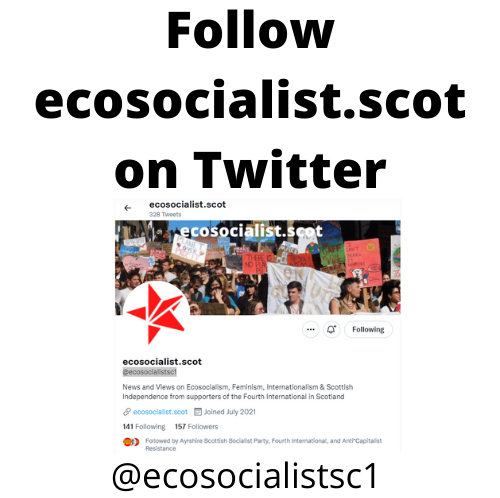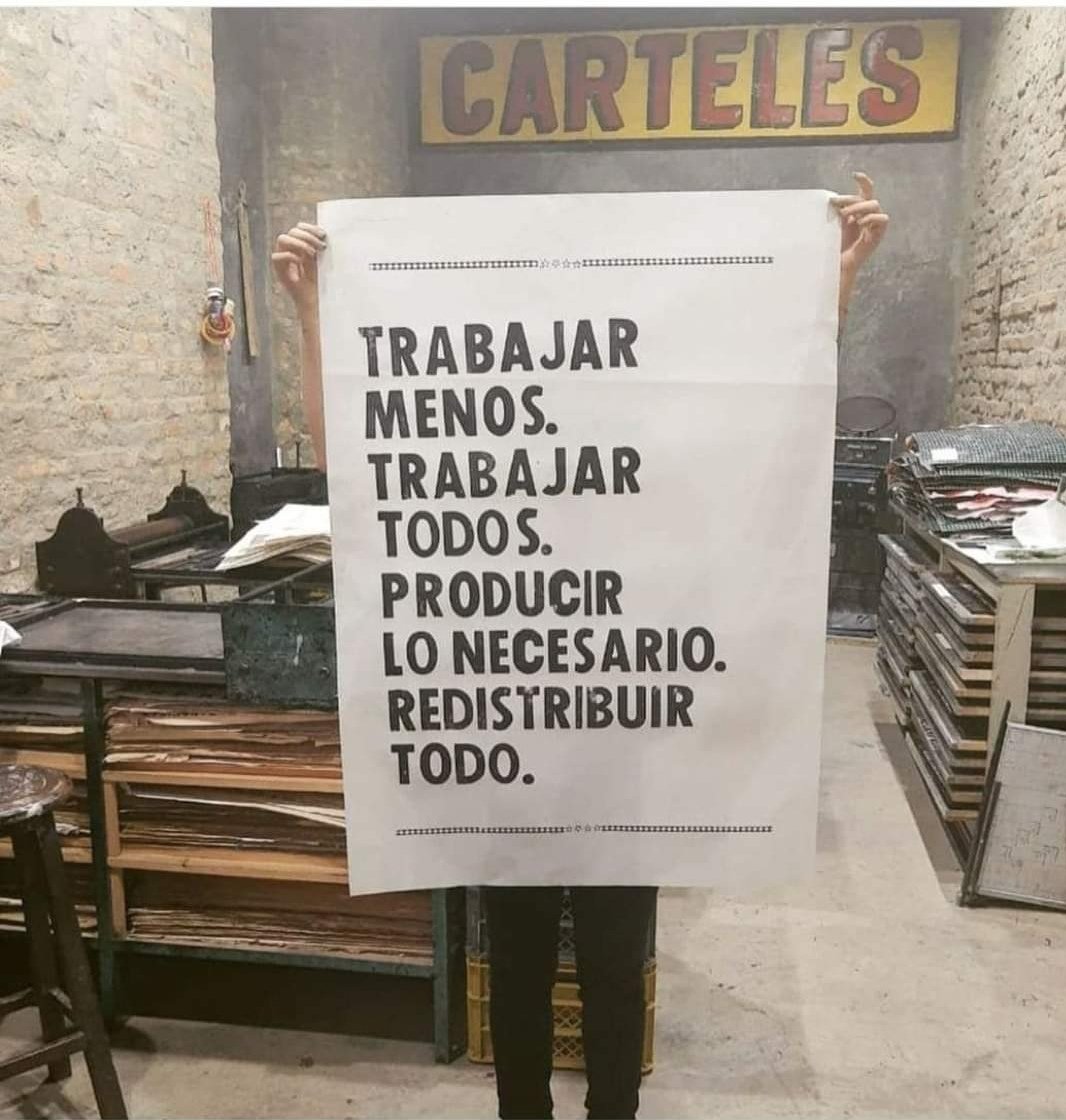The 28 April 2021 marked a new stage in the history of mobilization and the exercise of social protest in Colombia. The national strike called by the trade union federations ended up becoming a great popular uprising. On that same day, the capital cities saw mobilizations of workers, those in the informal sector, students, neighbourhood organizations, women, and indigenous and Afro communities; a diverse and plural social expression of a desperate people cornered by the implementation of decades of neoliberal policies, and which was left to its own devices during the pandemic. This popular uprising has a line of continuity with the urban mobilizations of 21 November 2019, but this time intermediate cities and rural areas joined in. There were street protests in 600 municipalities and the number of protesters reached approximately five million people.
This massive protest has already achieved results. The withdrawal of the tax reform, the departure of finance minister Alberto Carrasquilla and his economic team, the resignation of Chancellor Claudia Blum, the paralysis of health, pension and employment reforms in Congress which form part of the Duque government’s “Paquetazo”, demanded by the risk rating agencies and the IMF.
These results have been obtained despite the unprecedented police and military deployment in the country authorized by the government of Iván Duque against social mobilization. The 50 murdered, 400 disappeared, the hundreds injured and dozens of sexually abused women, leading in the case of 17-year-old Alisson Meléndez, raped in an Immediate Response Unit-URI- in Popayán, to her tragic decision to commit suicide, have been the consequence of a civil war approach to citizen protest taken by ESMAD, the police, army and armed civilians. In Cali, the repression included the use of assault weapons, grenades and gas against the protesters and surrounding neighbourhoods or residential units, and even machine-gunning from military helicopters, as occurred in Siloé.
On the outskirts of Buga, on the Pan-American Highway, airborne military units were also used, and nearby neighbourhoods were surrounded by ESMAD and attacked with gas and explosive weapons. In Popayán, the militaristic response to the uprising of popular indignation caused by police abuses has already cost one student dead, missing and injured. Something similar has happened in Yumbo. These military “theatres of operations” were authorized personally and directly by President Iván Duque, the general commander of the Armed Forces Eduardo Zapateiro, the general director of the police Jorge Luis Vargas to which we must add the responsibility by omission of the local mayors who handed over control of the “public order” of the cities without so much as a discussion. All of them are responsible for genocide and terrorism against the peoples and must be tried as such before the International Criminal Court and the international organizations created for this purpose.
This militaristic barbarism confirms that we are witnessing the collapse of the so-called “Rule of Law” and confirms that there is an abysmal separation between the institutions of a precarious representative democracy and the social demands of the majority of Colombians.
The systematic and programmed application of state terrorism also shows the crisis of peripheral capitalism in the country linked to the worst economic crisis in the history of capitalism and aggravated by the Covid-19 pandemic. We have reached the dead end of a state and elites incapable of meeting the most basic needs of the population, now, and in the medium and long term.
The social outbreak went beyond the classic forms of popular mobilization, making possible expressions of solidarity as with the presence of the indigenous “Minga” in Cali and blockades and self-defence (barricades) in the cities as key points of a genuine national strike.
Those who led the blockades, the so-called “front line” are young people marginalized by neoliberalism, lacking health, education and work who came to protest out of outrage, united in hopelessness. They do not believe in conventional institutions, nor in political parties, whether from the left or the right.
They are organized “from below” in slow coordination processes based on the demands of the street resistance; they reject personal leadership, proclaim “horizontality” in decision-making, and have gained great social legitimacy in the neighbourhoods where they operate and facilitate popular assemblies. These urban blockades, according to public statements by the Archbishop of Cali, Darío Monsalve, “constitute almost the only way that strike activists have to make themselves heard …” and also arose in response to the armed forces besieging of the cities.
The fact that the days of protest days began more than two weeks ago and that the blockades have been presented by the government, businessmen and local merchants as being responsible for the shortage of basic necessities and fuel, despite the enabling of “humanitarian corridors” by the protesters, has opened discussion on whether to maintain them. In this regard, we consider that any decision should be preceded by guarantees of no prosecutions or criminalization for all those leading the blockades, supervised by human rights organizations and, as far as possible, international agreement and with explicit commitments from the national government. and local leaders on their demands. What has been happening in Cali after the failure of the negotiations attempted with the mayor’s office is contrary to what we need to find solutions to the current situation. The neighbourhood leaders who attended the convocation were detected and are currently being detained by the police under house arrest to be prosecuted.
Regarding the political decision in relation to the blockades, we consider that this should correspond to those who have been organizing them as a form of legitimate resistance, that is, to the members of the front lines and close logistical support. Those who have led the street confrontations, and have made up the dead, wounded and missing are those who have the moral authority to make this decision. The same must be said about roadblocks by transporters and peasants.
The gigantic marches that we have witnessed in Ibagué, Neiva and Bogotá in recent days and the social organizations that have joined such as transporters throughout the country and coca growers in the southwest confirm that this popular uprising is on the rise, which is why we believe the decisive factor is the opening of political alternatives “from below” to the crisis of peripheral capitalism in the country.
It is showing that self-organization and direct democracy expressed in multiple forms of resistance contribute to the consolidation of a “parallel institutional framework” that goes beyond the narrow limits of representative democracy. This uprising went beyond the traditional representative character of the trade union organizations and the oficial national strike leadership, confirming that their narrow protest action does not correspond to the demands of the broad popular spectrum. On 1 May, there was dramatic evidence of this. While in the street skirmishes police brutality had already caused deaths and disappearances, the trade union federations called for a celebration of the workers’ day with a “virtual parade”. The distrust felt by neighbourhood and popular leaders in relation to the negotiations that the strike committee is trying to develop stems from this reality.
The popular uprising also demonstrates the inability of a congress and political parties mired in corruption and commitments to the businesses of big capitalists, as well as regulatory agencies and high courts that have played the role of accomplices in the face of the militaristic barbarism that we currently witness. For this reason, an institutional crisis has opened that could end in the resignation of President Duque. The development of events and the relationships of forces that are established in the immediate future will determine if it is possible to realize this possibility, which would be a real blow to the neoliberal and militarist political regime. We agree that it is necessary to raise it from now on as it has been proposed, with increasing force, by the political and social organizations. Ignoring this possibility on the grounds that it would produce an “institutional vacuum” leading to the arrival at the Palace of Nariño of the vice president or president of Congress, who supposedly are worse than Duque, or that the resignation would open the path to a military coup, reasons why it is necessary to “defend Duque from Uribismo” which placed him in power, exempts him from political responsibility for collective murder against defenceless people, as head of the armed forces, and also starts from the mistaken criterion that the deepening of the institutional crisis that would open the popular overthrow of a reactionary government such as that of Duque, something unprecedented in the history of the country, could only be resolved within the framework of the same institutional framework that is collapsing.
On the contrary, we consider that a popular triumph of these characteristics would open great possibilities for the autonomous political action of the people and open the way to the convening of a Constituent and Popular Assembly. It would be the best way to isolate and defeat political reaction and the coup plotters, at a time when there is immense popular solidarity at the international level.
The social and popular leaders have also emphasized the following economic and social demands that we support and that can form a minimal emergency platform in the face of the impoverishment to which millions of Colombians have been subjected due to the neoliberal policies that continue to be imposed by Duque’s government:
• Prosecution and punishment of those responsible for the murders and disappearances that occurred during the militarization of social protest. Punishment of those responsible for raping women. Dismantling of ESMAD and transformation of the police into a civilian body dependent on the Ministry of Government.
• Stop the murder and massacres of social leaders. Promote a humanitarian agreement with all the armed groups from now on in order to find a way out of the conflict that must conclude at negotiating tables differentiated according to the characteristics of each group.
• A Basic Emergency Income for those in the informal sector and the unemployed. To achieve this objective, it is necessary to suspend the payment of the public debt that currently represents 63% of Gross Domestic Product and carry out a democratic and redistributive tax reform establishing a wealth tax on the rich and super rich, not deductible from income tax; taxation of corporate dividends and inheritances, as well as the elimination of tax exemptions for large companies and the financial sector. Fulfilment of the peace agreements, particularly with regard to the voluntary substitution of crops and the implementation of collective projects that improve the standard of living of peasant and ethnic communities, based on food sovereignty.
• An employment generation programme for young people, expansion of coverage and financing of enrolment of students in public universities.
• Down with the genocidal government of Iván Duque!
• For an alternative solution to the current crisis: A Constituent and Popular Assembly!




